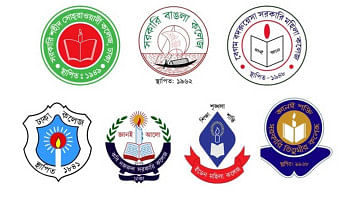Reclaiming canals, rivers only solution: Experts
Recovery of rivers and all listed canals in and around Dhaka city from the grip of land grabbers is an immediate way out to salvage the capital city from recurrent waterlogging with monsoon rain, said urban planners and public officials at a seminar in the city yesterday.
Reclaiming canals and rivers, instead of undertaking high-cost mega projects, would dramatically improve the situation, said Fazle Hossain Badsha, member of parliamentary standing committee on local government and rural development.
“The rivers and canals of Dhaka have been under illegal clutch of a handful of influential people, but successive governments proved unable to free those,” said the lawmaker.
Nagar Unnayan Sangbadik Forum, an association of urban development reporters, jointly with Plan International Bangladesh and Social and Economic Enhancement Programme (SEEP), organised the seminar titled “Waterlogging in the capital and ways out” at CIRDAP auditorium.
All rivers of the city are illegally encroached by land grabbers, said Dhaka North City Corporation (DNCC) Panel Mayor Jamal Mostafa. Free the rivers and grabbed canals and the drainage system will be functional, he said.
All city canals must be restored and excavated to their original length and breadth to resolve the city's crisis of waterlogging due to monsoon rain, said former director general of Bangladesh Water Development Board M Inamul Haque in a keynote.
Khan Mohammad Bilal, chief executive officer of Dhaka South City Corporation, said, “How can a city with rivers all around it get inundated with rainwater?”
On one hand, the city has been enclosed with embankment on three sides blocking rainwater passage, he said. On the other hand, conservable wetlands in and around the city have been filled up as the wetland conservation law is not being enforced.
“Too many authorities with too little performance is a fundamental challenge for Dhaka city,” he said.
Whatever the number is, the city's canals must be reclaimed as per land survey records by a powerful organisation in order to reestablish the natural drainage system, said Sharif Uddin, superintendent engineer of DNCC .
Prof Adil Mohammed Khan, general secretary of Bangladesh Institute of Planners, said authorities must assess efficiency of the available drainage facilities, conserve water retention areas and ensure 25 percent open space of the city area.
Md Ashraful Islam, project director for ongoing revision of Dhaka's Detailed Area Plan, said alongside the canal-river network, conservation of minimum 12 percent of the city area as water retention area is a must of rainwater management, as suggested in the Flood Action Plan.
Dhaka Wasa Director AKM Shahid Uddin, country director of Plan International Bangladesh Orla Murphy, SEEP Executive Director Fazlul Haque Choudhury and Nagar Unnayan Sangbadik Forum President Amitosh Pal also spoke, among others.

 For all latest news, follow The Daily Star's Google News channel.
For all latest news, follow The Daily Star's Google News channel. 



Comments